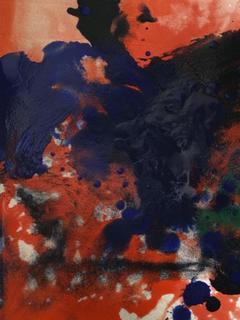
Our cultural productions and our art will defines us, whether we like it or not. Art expresses who we are.I just read a posting by Makoto Fujimura of a talk he gave on the topic "Why Art". He is a painter and writer, and has thought a great deal about the topic. I simply refer you to his original posting for his excellent summary. But I want to go a bit beyond his discussion.
I recently posted on the changing concept of culture in UNESCO, posting the following:
In the 1990's UNESCO became involved in efforts focusing on culture and development. That work resulted in a new and important conceptualization of development. It recognized that culture is not simply a factor to be taken into account in planning for economic and social development, but the context in which all development takes place, and indeed the determinant of the values of a people which determine the directions that that people seeks from development.I think that Fujimura is right that our literature, our drama, our paintings, our design, our music, our dance -- indeed all our arts -- are important aspects of the glue that makes us a people. These shared expressions of our culture help us to form a common culture, which in turn is what makes us a unified people.
The arts are important for social and economic development in part because they help us to form our aspirations as a people, and in part because they help us to achieve cohesion of action that are important in achieving those aspirations.
That brings me to the distinction between high art and the arts of popular culture. I suppose in part subcultures define and are defined by their own artistic expression. And as the arts of subcultures penetrate mainstream culture, they can bind our subcultures into a larger people, while at the same time the artistic expression of a subculture can help it to maintain its cultural identity.
The other definition of culture is "the best that has been written and thought". I suspect that the best comes out of a combination of talent, training and diligent application. Experience has shown that the best of art can arise from the arts of subcultures, that talent can be found everywhere, and that training can take place far from school. If we look at subcultures, there are clearly individuals who devote their lifetimes to the production of their art. Still, a Juilliard that recruits students with talent and demonstrated willingness to apply themselves to their art, and provides them with excellent training and strong motivation to continue learning and applying themselves is likely to produce art of a very high standard indeed.
Is there a virtuous circle? Can exposure to high quality art help us to coalesce as a people to define and achieve worthy goals, which in turn provide society with the resources and motivation to produce more high quality art?
No comments:
Post a Comment